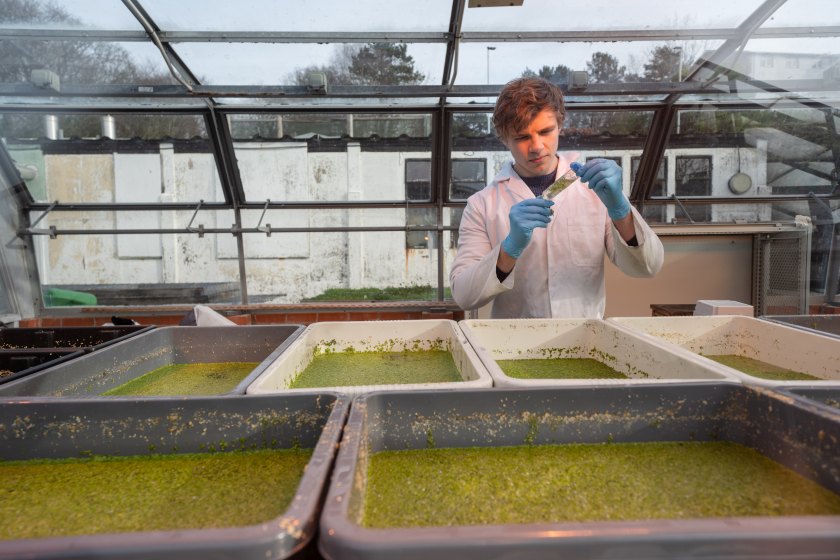
Farmers could use a native Welsh plant to turn agricultural waste into feed for livestock, according to a new research project.
The study is investigating how slurry and wastewater from the beef and dairy industries could be used to grow duckweed.
Described as a ‘miracle plant’ due to its fast-growing nature and ability to clean waste water, duckweed can also provide a valuable protein source for livestock.
Researchers at Aberystwyth University and University College Cork say it could benefit beef and dairy producers by reducing their reliance on importing protein-rich feed such as soy.
Duckweed’s waste water cleansing properties could also help improve water quality in rivers and coastal areas.
With a single cow producing up to 60kgs of waste per day, storing slurry is a significant cost for farmers.
Dr Dylan Gwynn-Jones, who is leading the project at Aberystwyth University, said researchers were very keen for farmers to get involved.
He added that native duckweeds could make slurry a valuable resource for the industry.
"With expected increases in global food production, there is a pressing need for agriculture to be carbon-friendly, while protecting water quality and biodiversity.
“By helping the agricultural industry develop technology to produce valuable green protein from waste, the research effectively allows farmers to ‘make money from muck’."
Researchers are currently trailing innovative technological systems to grow duckweed on agricultural waste streams.
In essence, through the up-take of excess nutrients, the plant can create value from waste in the form of a high-protein biomass which can be used in animal feed, reducing farmers’ reliance on imported soybean.
Scientists say this research has the potential to bring tangible economic and environmental benefits to farming practices in the UK.
Dr Gwynn-Jones added: "They are amongst the fastest growing plants, they are tolerant of ammonium, which is found in slurry, and they produce valuable essential amino acids that make it a promising feed-stock.”
